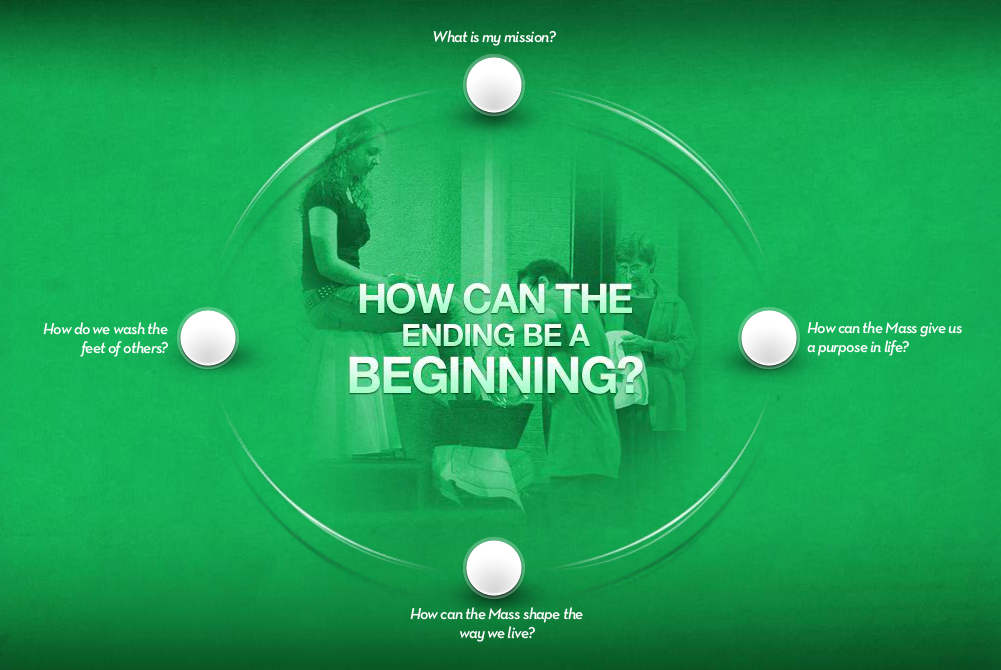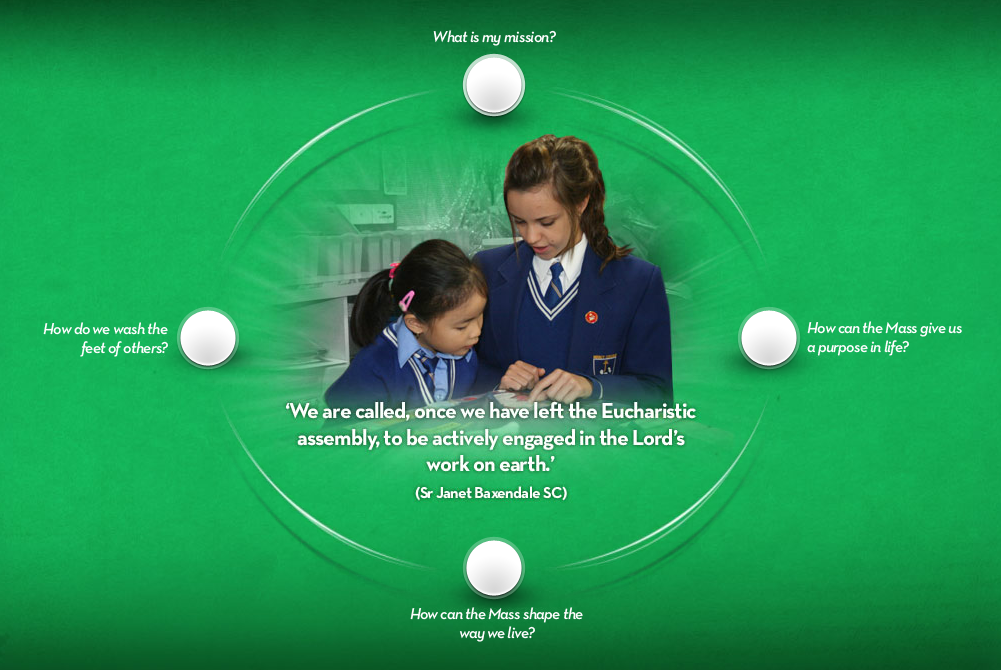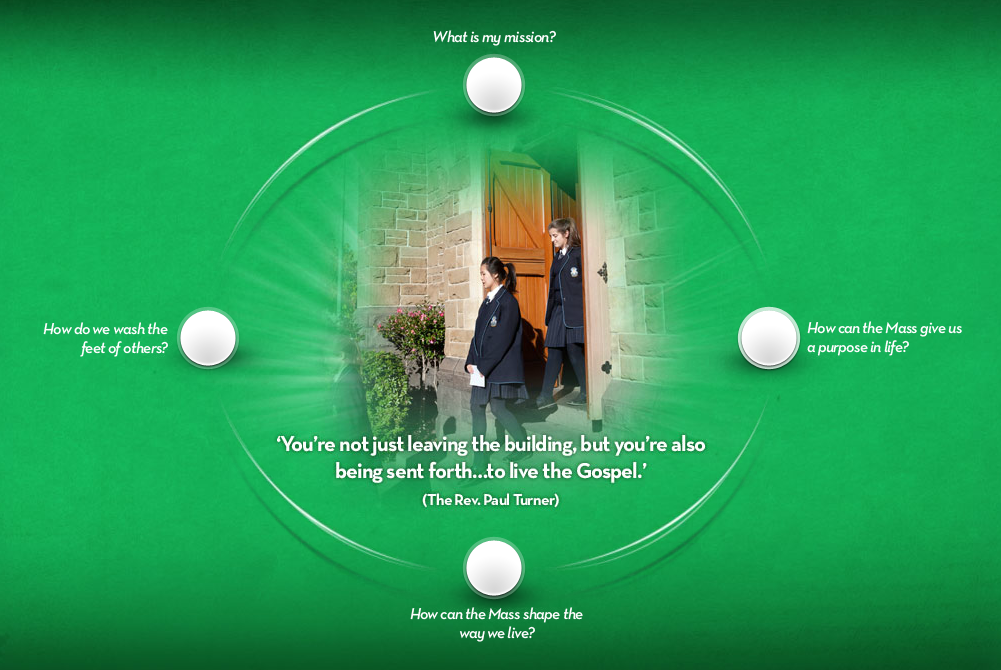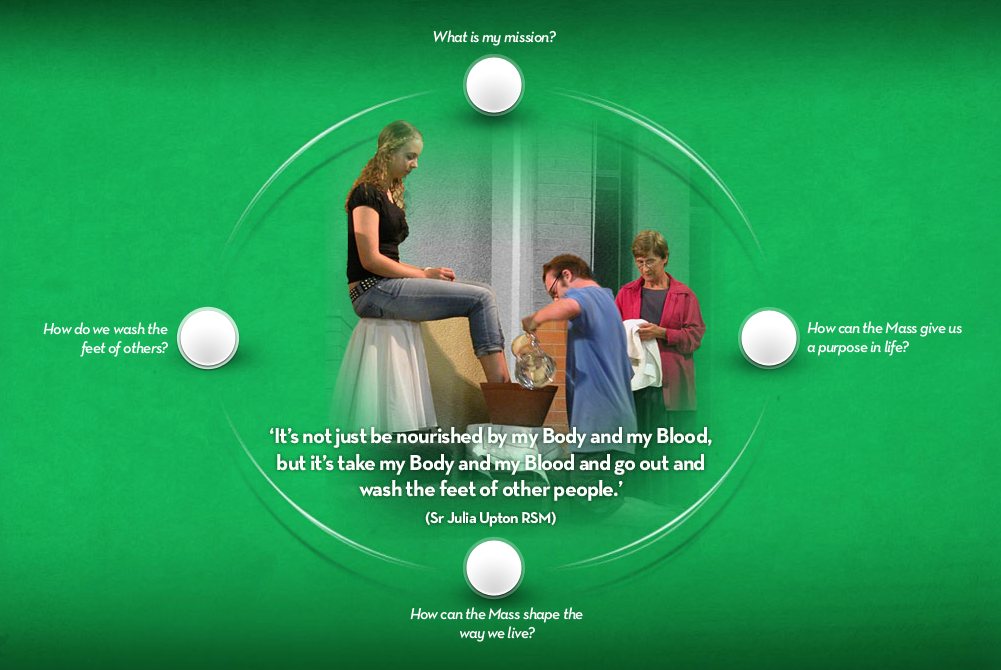What is my mission?
‘Our presence and our participation in the Mass, while vitally important for followers of Christ, are not enough. We are called, once we have left the Eucharistic assembly, to be actively engaged in the Lord’s work on earth. The Latin phrase that concludes the Mass is Ite, missa est, which is translated, Go forth the Mass is ended. When we leave the Eucharistic celebration, we are not simply dismissed. We are told to go forth and we are given a mission.’
- Sr Janet Baxendale SC
For Your Reflection:
1
Name three of the main points made in this video.
2
Why is it true to say that: ‘Our presence and our participation in the Mass … are not enough’?
3
Where do you see people ‘engaged in the Lord’s work’ today?
4
Where do you do ‘the Lord’s work’ in your life?
How can the Eucharist give us a purpose in life?
‘It’s dismissal with a purpose, telling us to do something…you’re not just leaving the building, but you’re also being sent forth…to live the Gospel.’
- The Rev. Msgr. Bruce Harbert and The Rev. Paul Turner
For Your Reflection:
1
Explain the meaning of this statement.
2
Why is it important?
3
What are some of the signs that people are living the Gospel?
How can the Eucharist shape the way we live?
‘We go out from the Eucharistic celebration so as to lead Eucharistic lives, which leads to the notion of the Eucharist as a heart beat at the centre of our lives as Christians; we go out from the Eucharist renewed and strengthened so as to do the work of Christ, to be the Body of Christ in the world.’
- The Rev. Msgr. Paul McPartlan
For Your Reflection:
1
What does it mean ‘to lead Eucharistic lives’?
2
Explain the concept of the Eucharist ‘as a heart beat at the centre of our lives as Christians’.
3
Describe a time when you left the Eucharist ‘renewed and strengthened so as to do the work of Christ’. What led to this experience and action followed?
How do we wash the feet of others?
‘When we come together for Eucharist we come out of that Last Supper experience…It’s not just the transformation of the bread and the wine, it is also the washing of the feet…It’s not just be nourished by my Body and my Blood, but it’s take my Body and my Blood and go out and wash the feet of other people.’
- Sr Julia Upton RSM
For Your Reflection:
1
Read the account of Jesus’ washing of the feet of his disciples (John 13: 1-20).
2
Why did Jesus do this? What does the symbolism mean?
3
What effect did it have on the disciples?
4
In what way do you ‘go out and wash the feet of other people’?
For Reflection and Discussion
Undertake a self-evaluation using the following prompts:
1
What are three things I learnt from these quotations and reflections?
2
What are two questions or comments
I have?
2
What are two questions or comments
I have?





